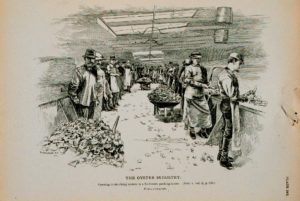Maybe it’s because I’m actually intimidating, but I for the most part consider myself fairly lucky as a woman in science. I’ve been fortunate enough to escape the horror stories of exploitation and sexual harassment that fill many of my colleagues’ journals. Yet, the recent story about the lack of medium-sized spacesuits – and the social media chatter about lack of women’s field gear – hit a nerve. It made me question my perceived luck.
I also remembered reading other women’s long list of times gender bias reared its ugly head in a career perfectly devoid of major sexual misconduct. I bet I could write that, I thought to myself. I wonder how long the list would be. So here goes, starting with the most egregious:
Read More “All the times gender bias has reared its ugly head” »
